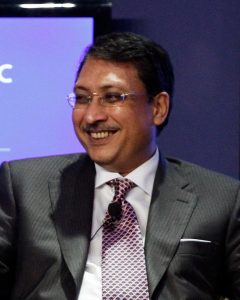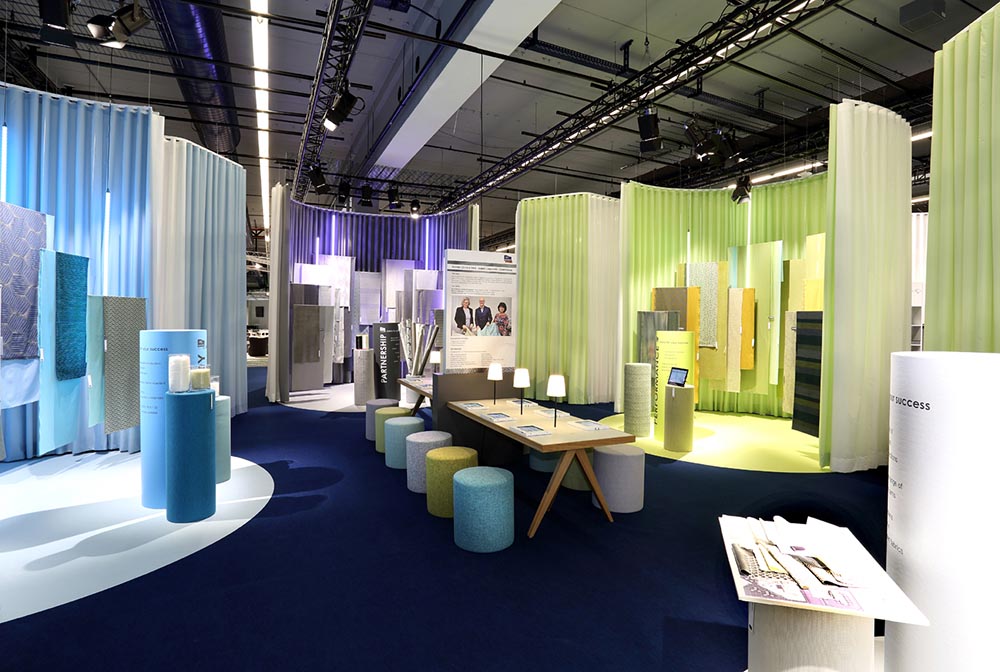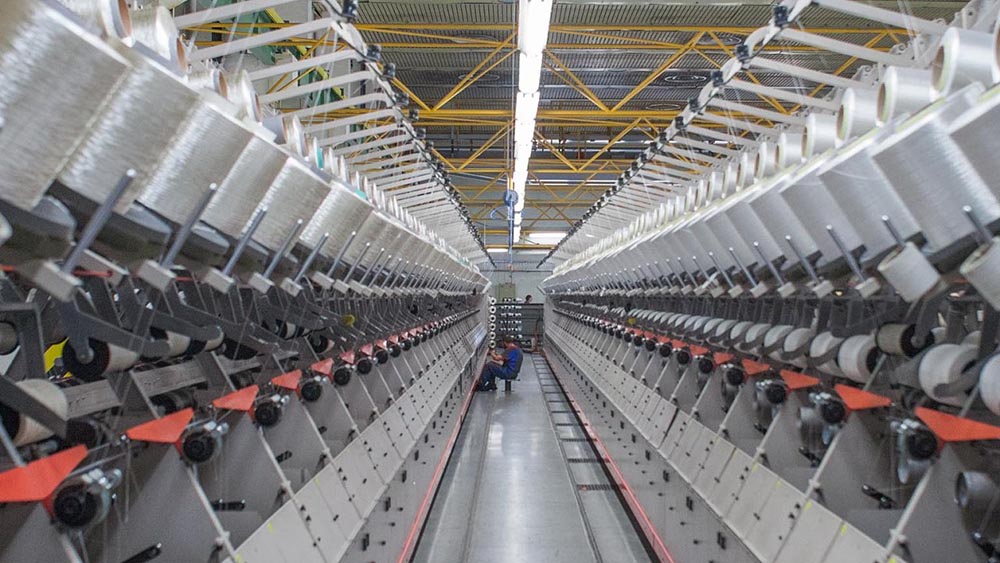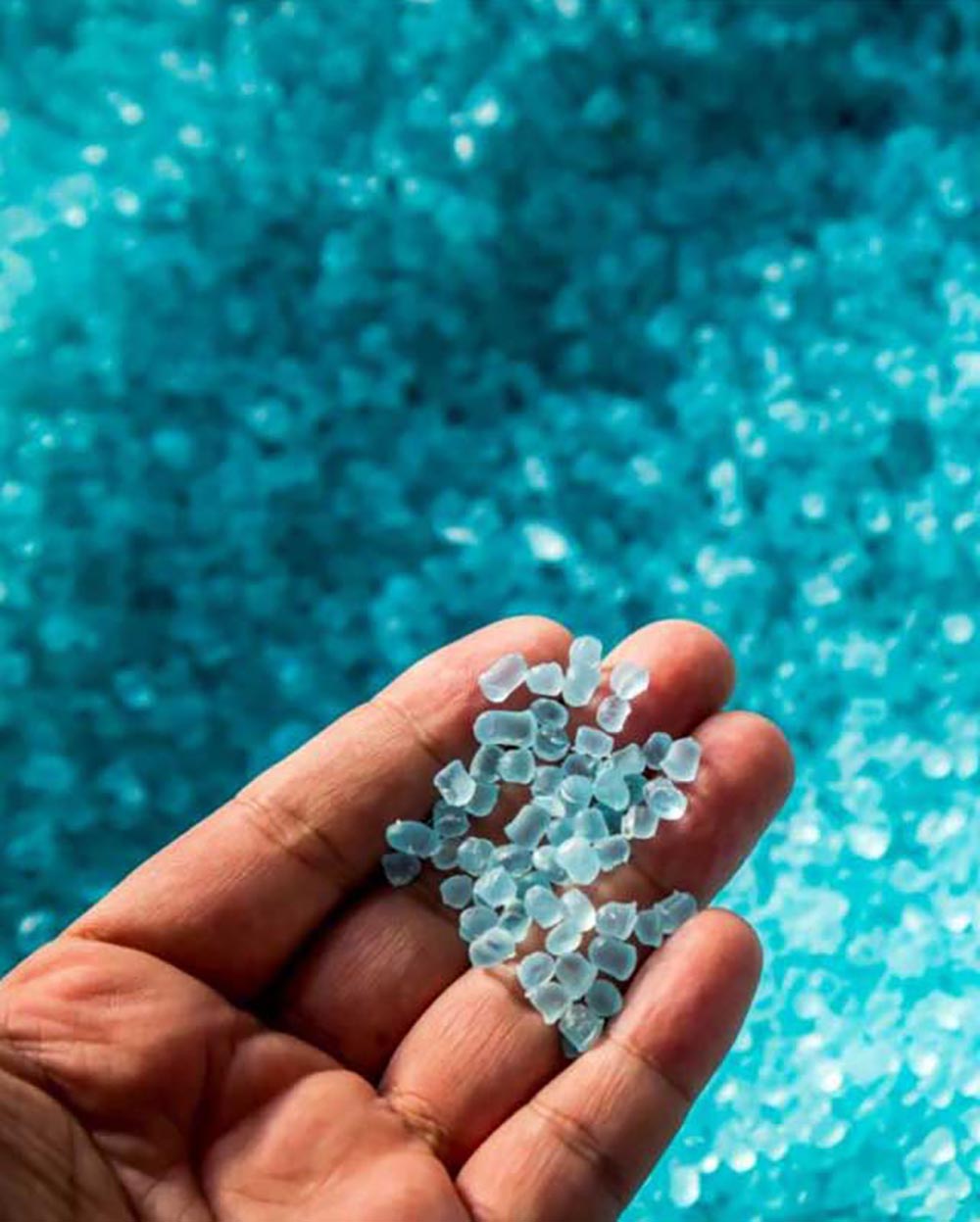
As reported in the review of the Dornbirn Global Fiber Congress 2018 by Geoff Fisher in the October issue of International Fiber Journal, the push towards the circular economy is very much animating manufacturers at present.
Among notable moves in this direction is the joint venture signed recently between Indorama Ventures and a fast-rising new chemicals company – Loop Industries, based in Montréal, Quebec, Canada.
Diversified
There was little indication back in 1994, when Indorama Holdings became Thailand’s first worsted wool yarn producer, that in under a quarter of a century it would rise to become one of the biggest – and certainly the most diversified – synthetic fiber and fiber feedstocks producers in the world.
Now, with an extensive fiber portfolio consisting of polyesters, polyolefins, polyamides, viscose, aramids and bicomponent fibers, the company supplies to five key market sectors – apparel, automotive, home, hygiene and medical, and industrial/technical. With sales of $8.4 billion in 2017, its earnings exceeded the $1 billion mark for the first time last year.
Founded by Indian businessman Aloke Lohia in the 1990s and early 2000s, the company made a series of acquisitions in the synthetic fibers, resins and feedstocks sectors, initially in Thailand and then in the surrounding countries, followed by the USA and Europe. From 2009, after being renamed Indorama Ventures Limited (IVL), the acquisitions have only intensified globally.
Smart manufacturing
They have included some of the smartest manufacturers of specialty fibers in both Europe and the USA, which continue to operate under their own brands, including Germany’s Trevira, which IVL has fully owned since May 2017.
Trevira’s CS brand for flame retardancy has been hugely successful since its introduction in the 1980s, especially in the home textiles market. CS polyester fibers and yarns are inherently flame retardant, providing long-term security compared with fabrics that receive a surface treatment at a later stage, and based on a phosphor-organic compound firmly anchored into the fiber.
Trevira also makes a comprehensive range of special fiber types for blended ring yarns, woolen yarns, worsted yarns and cotton spinning, as well as for nonwovens.
IVL further acquired FiberVisions, one of the world’s largest manufacturers of polyolefin fibers, with facilities in the USA, Europe and China, as well as a joint venture in Japan in 2012 and PHP Fibers in 2014.

Contract Textiles taking place in Frankfurt am Main from January 16-22, 2019.
Tire cord
PHP manufactures high-tenacity filament yarns for airbags and tire cord at Obenburg, Germany, in Scottsboro, Alabama, USA, and at a joint venture in Pindingshan, China. Its key brands are Diolen (polyethylene terephthalate – PET), Enka Nylon (polyamide (PA) 6.6) Enkalon (PA 6) and Stanylenka (PA 4.6).
This year, PHP started its own airbag fabric weaving operation at its headquarters in Obenburg, in cooperation with Japanese fiber manufacturer Toyobo to become an integrated supplier of airbag yarns and fabrics.
Further recent acquisitions in the tire cord fiber business have included those of Austria’s Glanzstoff, Kordárna in the Czech Republic and DuraFiber of Mexico.
Nonwovens
In May this year IVL entered the huge spunbond nonwovens business for hygiene by acquiring a 65% stake in Israel’s Avgol Industries.
Avgol has six production sites globally in Israel, the USA, Russia, China and India, with a combined production capacity of 203,000 tons per annum, and employs 900 people worldwide.
Optimism
Having remained chief executive officer of the organization to this day, Lokia is optimistic about the future of the synthetic fibers industry.
“We believe that much of the overcapacity that has impacted our industry has now gone and we are coming to a balance,” he said in a recent interview in Forbes magazine.
“We are experiencing a cyclic recovery. At the same time, during the down-cycle of the industry, many companies got hurt and the number of players has reduced, so the market is more consolidated. Now we have more scale, margins are better and I think there is much more reliability in the market.”

Recycling
Ireland’s Wellman International has been an IVL subsidiary since 2011 and is the leading European producer of polyester staple fiber from rPET (recycled polyester) material and also the largest recycler of plastic bottles in Europe, converting some 2.2 billion bottles each year. Further IVL recycling operations have subsequently been set up in the USA, Mexico and Thailand.
To build on the Wellman business in Europe, IVL has just acquired French plastics recycling company Sorepla, located in Neufchâteau, near Wellman’s existing PET recycling plant in Verdun in northern France.
Sorepla is one of the largest plastics recycling operations in Europe, with a capacity of 52,000 tons per year. IVL said the acquisition fits with its long-term business plans, as well as its sustainability objectives, expanding the opportunity to cater to the increase in demand for recycled PET.
Exclusive license
The 50/50 joint venture with Loop Industries is poised to takes this to the next level. It gives IVL an exclusive worldwide license to use Loop’s technology to produce 100% sustainably produced PET resins and polyester fibers, with plans to begin commercial production in the first quarter of 2020. The production from the facility IVL builds will be fully subscribed by leading global consumer brands, the company said.
Loop Industries has emerged with a truly transformational technology that allows plastics of no or little value to be diverted, recovered and recycled endlessly into new, virgin-quality PET. This includes plastic bottles and packaging of any color, transparency or condition, as well as carpet, clothing and other polyester textiles that may contain colors, dyes or additives – and even ocean plastics that have been degraded by sun and salt – to meet US Food and Drug Administration (FDA) requirements for use in food-grade packaging.
Through its patented zero-energy depolymerization technology, the waste plastic and fibers are completely broken down into their constituent monomers – dimethyl terephthalate (DMT) and monoethylene glycol (MEG). The monomers are then purified, removing all coloring, additives, and organic or inorganic impurities. The DMT and MEG components are then repolymerized into new PET plastic.
Loop stresses that “down-cycling” is what most often happens in the traditional recycling process, when high-quality goods of food-grade plastic are transformed into lower-quality goods. This reduction in quality prevents recycling efforts from being truly circular, since a surprising amount of waste material still eventually ends up in landfills, and manufacturing from outside the process is required to retain product quality.
By contrast, Loop’s depolymerization process involves taking low-quality material and transforming it into high-purity PET. Upcycling is a benchmark of the circular economy by significantly extending the lifecycle of manufactured goods by creating them out of waste.

No degradation
“Based on all the pilot work to date, there has been no degradation in quality observed, making the process continuous,” said Daniel Solomita, CEO of Loop Industries, who founded the company out of his garage just three years ago.
“The current methodology of recycling first goes through a sorting facility, then an intensive wash and then is simply melted down and turned into pellets that can be used to make plastic again. This process, he added, does not allow for 100% rPET in many products, owing to the high quality required.
However, Loop’s technology is not faced with the same constraints as existing rPET producers. “We use no water at all, and the depolymerization happens with no heat and no pressure, which is the key,” Solomita said. “We do, however, use heat and pressure in the purification part of the process, and there is also heat and pressure used to combine the two to create the new virgin plastic.
“We’ve now proven our technology works on an industrial scale and we’ve run one-ton batches, but more and more brands are coming out with ambitious goals, so we have to scale quickly if they’re going to meet their goals.
“We really need everybody to do this. We need the brands as customers and the manufacturing partners to put up the global infrastructure needed to scale up, and the waste companies and consumers to do the right thing and recycle the packaging so that we can put it through our process.”
Opportunity
This call for urgency is not falling on deaf ears and IVL is not alone in having quickly recognized the huge opportunity Loop’s breakthrough may represent.
Other brands working with the company include Danone and L’Oreal, and two years ago bottled-water giant Evian moved a research and development team into the Loop Industries pilot plant, spending 20 months conducting rigorous tests that not only proved the science of the method, but also its commercial viability.
Despite the complex chemistry involved in Loop’s top-secret catalyst, the rest of the process has been consciously kept simple so that it can be easily scaled up and deployed anywhere in the world, Evian reported.
By 2025 Loop Industries will have two European facilities supplying all the virgin-quality plastic resin that Evian needs to meet its commitment to making all of its bottles from 100% recycled plastic by 2025.
PepsiCo
In October Loop subsequently secured a multi-year supply agreement with PepsiCo, under which the soft-drinks maker will purchase production capacity from Loop’s plant in the USA and incorporate Loop PET plastic into its product packaging by early 2020.
“Working with these global leaders will further establish the value proposition of the Loop brand and mission: to accelerate the world’s shift toward sustainable plastic and away from the traditional, ‘take, make and dispose’ economy,” said Solomita.
Loop plastic, however, will be a premium product, and a premium will have to be paid for the resulting products.
“It’ll be up to the brands whether they decide to absorb the cost or pass it down to consumers,” Solomita concluded. “I believe a lot of consumers will do the right thing if they have a choice.”


